- Home
- Philip Pullman
The Book of Dust: The Secret Commonwealth (Book of Dust, Volume 2) Page 4
The Book of Dust: The Secret Commonwealth (Book of Dust, Volume 2) Read online
Page 4
Pan was sitting on her lap, watching everything. When two other policemen came out of a back office and stopped to talk by the counter, he turned to look at them, and a moment later Lyra felt his claws dig into her hand.
She didn’t react. He’d tell her what it was about in a moment, and so he did, flowing up to her shoulder and whispering:
“That’s the man from last night. That’s the killer. I’m certain of it.”
He meant the taller and heavier of the two policemen. Lyra heard the man say to the other, “No, it’s overtime, completely legitimate. All done by the book. There’s no doubt about it.”
His voice was unpleasant, harsh and thick-sounding. He had a Liverpool accent. At the same moment, the man who wanted the fishing license said to the duty sergeant as he turned away, “Well, if you’re sure, I’ve got no choice. But I’ll want it in writing.”
“Come back this afternoon, and my colleague who’ll be on the desk then will give you a document all about it,” said the sergeant, winking at the other two.
“All right, I will. I’m not giving up.”
“No, don’t do that, sir. Yes, miss? How can I help you?”
He was looking at Lyra, and the other two policemen were watching.
She stood up and said, “I don’t know if I’ve come to the right place, but my bicycle was stolen.”
“Yes, this is the right place, miss. Fill in this form and we’ll see what we can do.”
She took the paper he handed her and said, “I’m in a bit of a hurry. Can I bring it back later?”
“Anytime, miss.”
Her inquiry not being very interesting, he turned away and joined the conversation about overtime. A moment later, Lyra and Pan were out in the street again.
“Well, what do we do now?” said Pan.
“Go to the left-luggage place, of course.”
* * *
* * *
But Lyra wanted to see the riverbank first. As they walked across Carfax and down towards the castle, she went over the story with Pan again, each of them being so scrupulously polite and attentive to the other that it was almost painful. Everyone else Lyra could see in the streets or the shops, everyone she’d spoken to in the market, was perfectly at ease with their dæmon. The café owner George’s dæmon, a flamboyant rat, sat in the breast pocket of his apron, passing sardonic comments on everything around her, just as she’d done when Lyra was a small child, completely content with George as he was with her. Only Lyra and Pan were unhappy with each other.
So they tried very hard. They went to the allotment gardens and looked at the gate in the high fence around the Royal Mail depot, where the second attacker had climbed over, and at the path from the railway station that the victim had come along.
It was a market day, and as well as the sound of railway cars being shunted in the sidings, and the noise of someone using a drill or a grinder to repair a machine in the Royal Mail building, Lyra heard the mooing of cattle from the pens in the distance. There were people everywhere.
“Someone might be watching us,” she said.
“I suppose they might.”
“So we’ll just wander along as if we’re daydreaming.”
She looked around slowly. They were standing in the area between the river and the allotments, a roughly tended open meadow where people strolled or picnicked in the summer, or bathed from the riverbank, or played football. This part of Oxford wasn’t home territory for Lyra, whose allegiance had lain mostly with the urchins of Jericho, half a mile north. She had fought many battles with the gangs from around here, from St. Ebbe’s, in the days before she went to the Arctic and left her world altogether. Even now, a young woman of twenty, educated, a student of St. Sophia’s, she felt an atavistic fear of being in enemy territory.
She set off slowly, crossing the grass to the riverbank, trying to look as if she were doing anything other than looking for a murder site.
They stopped to look at a train loaded with coal coming slowly down from their right towards the wooden bridge over the river. Trains never crossed it fast. They heard the trundle of the coal trucks over the bridge, and watched the train swing away to the left on the branch line that made for the gasworks, and into the siding next to the main building where the furnaces roared day and night.
Lyra said, “Pan, if they hadn’t attacked him, where was he going? Where does the path lead to?”
They were standing at the southern edge of the allotments, where Pan had been when he first saw the men hide under the willow. The two trees were exactly ahead of them as they looked towards the river, about a hundred yards away. If the man hadn’t been attacked, the path would have taken him further along the bank, where the river curved around to the left. Without discussing it, Lyra and Pan moved slowly that way to see where he would have gone.
The path made directly along the bank towards a footbridge over the stream, which in turn led to the narrow streets of back-to-back houses around the gasworks, and the parish of St. Ebbe’s proper.
“So that’s where he was going,” said Pan.
“Even if he didn’t know it. Even if he was only following the path.”
“And that’s where the other man must have come from—the one who didn’t come from the mail depot.”
“You could get to anywhere from there,” Lyra said. “All those tangled old streets in St. Ebbe’s, and then St. Aldate’s and Carfax…Anywhere.”
“But we’ll never find it. Not by guessing.”
They both knew why they were talking like this, at the end of the footbridge over the stream. Neither of them wanted to go and look at the place where the man had been killed.
“We ought to, though,” she said, and he said, “Yes. Come on.”
They turned back and wandered along the bank of the river, making for the willow and the oak, where rushes grew thickly and the path was muddy. Lyra looked casually all around, but there was no one sinister or threatening: just some children playing by the stream further back, a few men working their allotments, and an elderly couple on the path ahead, walking arm in arm and carrying shopping bags.
They passed the old couple, who smiled and nodded when Lyra said, “Good morning,” and then they were under the oak tree. Pan leapt up from Lyra’s shoulder and showed her where he’d lain along the branch, and then sprang down again and flowed along the grass towards the willow.
She followed him, looking for signs of a struggle on the ground, but seeing only grass and trampled mud that was no different from the rest of the path.
“Anyone coming?” she said to Pan.
He jumped up to her shoulder and looked around. “A woman with a small child and a shopping bag coming over the footbridge. No one else.”
“Let’s look in the rushes. About here, was it?”
“Yes. Right here.”
“And he pulled the dead man down to the water?”
“In among the rushes, but not all the way down. Not when I was watching, anyway. He probably came back later and did that.”
Lyra stepped off the path and down the slope where the rushes grew. They were tall, and the slope was steep, and only six feet or so from the path she was invisible from anywhere in the meadow. It was hard to keep her footing and her shoes would be ruined, but she found her balance and crouched down low and looked around carefully. Some of the rushes had been bent over, their stems broken, and something had been pulled down over the mud, something that might easily have been the size of a man.
But there was no sign of a body.
“We can’t lurk about here too long,” she said, clambering out. “We really will look suspicious.”
“Station, then.”
As they walked along the path next to the mail depot, they heard the great bell of Cardinal’s College tolling eleven, and Lyra thought of the lecture that she shou
ld be attending just then, the last of the term. Annie and Helen would be there, though, and she could borrow their notes; and perhaps that good-looking shy boy from Magdalen would be sitting at the back, as before, and perhaps this time she could have gone to sit right next to him and see what happened; and everything would go back to normal. Except that as long as that locker key was in her pocket, nothing would be normal.
“It used to be you who was impulsive,” said Pan, “and me who kept holding you back. We’re different now.”
She nodded. “Well, you know, things change….We could wait, Pan, and go back to St. Aldate’s when that policeman goes off duty. Like this evening, about six, maybe. They can’t all be in a conspiracy with him. There must be someone honest there. This isn’t…this isn’t just shoplifting. This is murder.”
“I know. I saw it.”
“And maybe by doing this we’d be helping the murderer get away with it. By interfering with the investigation. That can’t be right.”
“That’s another thing,” he said.
“What?”
“You used to be optimistic. You used to think that whatever we did would turn out well. Even after we came back from the north, you used to think that. Now you’re cautious, you’re anxious…you’re pessimistic.”
She knew he was right, but it wasn’t right that he should speak to her accusingly, as if it was something to blame her for.
“I used to be young” was all she could find to say.
He made no response.
They didn’t speak again till they reached the railway station. Then she said, “Pan, come here,” and he leapt up at once into her hands. She put him on her shoulder and said quietly, “You’re going to have to look out behind. Someone might be watching.”
He turned around and settled as she climbed the steps to the entrance. “Don’t go straight to the lockers,” he murmured. “Go and look at the magazines first. I’ll see if there’s anyone just hanging about watching.”
She nodded and turned left inside the station doors and wandered over to the bookstall. While she flicked through one magazine after another, Pan looked at all the men and women queuing for tickets, or sitting at tables drinking coffee, or checking the timetables, or asking something at the inquiry desk.
“Everyone seems to be doing something,” he said quietly. “I can’t see anyone who’s just hanging about.”
Lyra had the locker key ready in her pocket. “Shall I go?” she said.
“Yes, go on. But don’t hurry. Just walk naturally. Look at the time or the departures and arrivals board or something….”
She replaced the magazine and turned away from the bookstall. It seemed to her that a hundred pairs of eyes could have been watching, but she tried to look nonchalant as she sauntered across the floor to the other end of the booking hall, where the left-luggage lockers stood.
“All right so far,” said Pan. “No one’s watching. Just do it now.”
Locker number 36 was at waist height. She turned the key and opened the door, and found a battered canvas rucksack inside.
“Hope it’s not too heavy,” she murmured, and lifted it out, leaving the key in the door.
It was heavy, but she swung it over her right shoulder with no difficulty.
“I wish we could do what Will did,” she said.
He knew what she meant. Will Parry had a power of becoming invisible that had astonished the witches of the north, who used to vanish from sight in the same way: by reducing what was interesting about themselves until they were almost unnoticeable. He had practiced it all his life, in order to avoid being spotted by people such as police officers and social workers who might have asked what this boy was doing out of school, and started to make inquiries that would have ended by separating him from his beloved mother, who was troubled by all kinds of unreal fears and obsessions.
When Will had told Lyra about the way he’d had to live, and how difficult it had been to remain unobserved, firstly she’d been astonished that anyone could live in such a solitary way, and secondly she had been moved by his courage, and thirdly she wasn’t surprised at all that the witches esteemed his skill so highly.
She wondered, as she did so often, what he was doing now, and whether his mother was safe, and what he looked like these days…and Pan murmured, “Good so far. But go a little bit faster. There’s a man on the station steps looking at us.”
They were on the station forecourt already, where taxis and buses set down passengers and picked them up. Thinking about Will, Lyra had hardly noticed how far they’d come.
“What’s he look like?” she said quietly.
“Big. Black woolly hat. Dæmon looks like a mastiff.”
She moved a little faster, making for Hythe Bridge Street and the center of the city.
“What’s he doing?”
“Still watching…”
The quickest way back to Jordan would have been the straightest, of course, but that was also the most dangerous, because she’d be visible all the way along Hythe Bridge Street and then George Street.
“Can he still see us?” she said.
“No—the hotel’s in the way.”
“Then hold on tight.”
“What are you—”
She suddenly darted across the road and ducked under the railings around the coal wharves, where the canal boats came to unload. Ignoring the men who stopped to watch, she ran around the steam crane, behind the Canal Board building, and out across the narrow street into George Street Mews.
“Can’t see him,” said Pan, craning his neck to look.
Lyra ran on into Bulwarks Lane, a pathway between two high walls no further apart than her own outstretched hands. She was out of sight entirely here: no one to help if she ran into trouble…But she came to the end of the lane and turned sharp left along another mews that ran behind St. Peter’s Oratory, and then out into New Inn Hall Street, which was busy with shoppers.
“So far, so good,” said Pan.
Across the street, and into Sewy’s Lane next: a dank little alley next to the Clarendon Hotel. A man was filling a large dustbin and taking his time over it, with his lumpish sow dæmon sprawled on the ground beside him, gnawing a turnip. Lyra leapt over her, causing the man to start backwards and drop the cigarette out of his mouth.
“Oy!” he cried, but she was already out into the Cornmarket, the main shopping street of the city, crowded with pedestrians and delivery vehicles.
“Keep looking,” Lyra said, nearly out of breath.
She darted across the road and down an alley next to the Golden Cross Inn, which led to the Covered Market.
“I’m going to have to slow down,” she said. “This is bloody heavy.”
She walked at a normal pace through the market, watching everyone ahead as Pan was watching behind, and trying to slow her breathing down. Only a short way now: out into Market Street, then left into Turl Street, only fifty yards away, and there was Jordan College. Less than a minute to go. Controlling every muscle, she strolled calmly along to the lodge.
Just as they entered, a figure stepped out of the door into the porter’s room.
“Lyra! Hello. Have you had a good term?”
It was the burly, red-haired, affable Dr. Polstead, the historian, who was not someone she wanted to talk to. He’d left Jordan some years before and moved to Durham College, across Broad Street, but no doubt he had business that occasionally brought him back here.
“Yes, thank you,” she said blandly.
A group of undergraduates came through at the same moment, on their way to a class or a lecture. Lyra ignored them, but they all looked at her, as she well knew they would. They even fell silent as they went past, as if they were shy. By the time they’d gone through, Dr. Polstead had given up waiting for any fuller response from Lyra and turned to the porter, so she le
ft. Two minutes later, she and Pan were in her little sitting room at the top of Staircase One, where she puffed out her cheeks with relief, dropped the rucksack on the floor, and locked the door.
“Well, we’re committed now,” said Pan.
“What went wrong?” demanded Marcel Delamare.
The Secretary General was standing in his office at La Maison Juste, and the person he was addressing was a casually dressed young man, dark-haired, slim, tense, and sulky, who was leaning back on a sofa with his legs stretched out and his hands in his pockets. His hawk dæmon glared at Delamare.
“If you employ bunglers…,” said the visitor.
“Answer the question.”
The young man shrugged. “They messed it up. They were incompetent.”
“Is he dead?”
“Seems like it.”
“But they didn’t find anything. Was he carrying a bag, a case of some sort?”
“Can’t see that sort of detail. But I don’t think so.”
“Then look again. Look harder.”
The young man waved a hand languidly as if shooing the idea away. He was frowning, his eyes half closed, and there was a faint sheen of sweat on his white forehead.
“Are you unwell?” said Delamare.
“You know how the new method affects me. It puts a severe strain on the nerves.”
“You are paid very well to put up with that sort of thing. In any case, I’ve told you not to use this new method. I don’t trust it.”
“I’ll look, yes, all right, I’ll look, but not now. I need to recover first. But I can tell you one thing: there was someone watching.”
“Watching the operation? Who was that?”
“No idea. Couldn’t tell. But there was someone else there who saw it all.”
“Did the mechanics realize?”
“No.”
“That’s all you can tell me about it?”
“That’s all I know. All it’s possible to know. Except…”

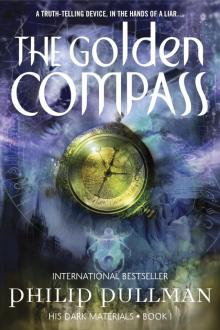 The Golden Compass
The Golden Compass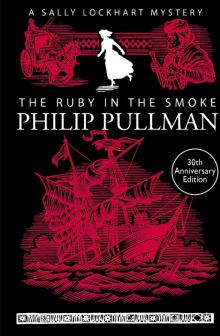 The Ruby in the Smoke
The Ruby in the Smoke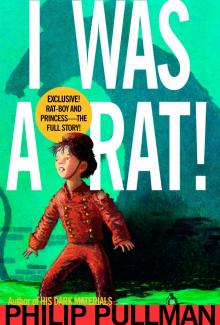 I Was a Rat!
I Was a Rat!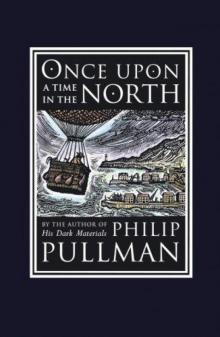 Once Upon a Time in the North
Once Upon a Time in the North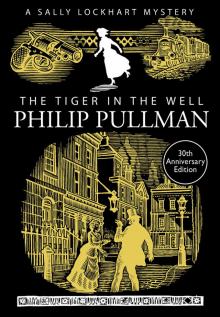 The Tiger in the Well
The Tiger in the Well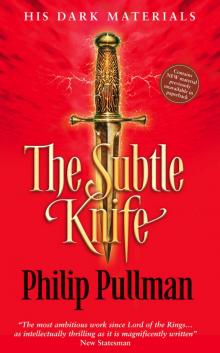 The Subtle Knife
The Subtle Knife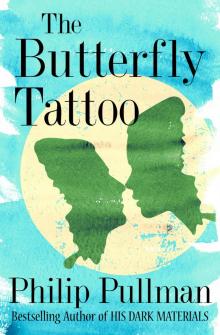 The Butterfly Tattoo
The Butterfly Tattoo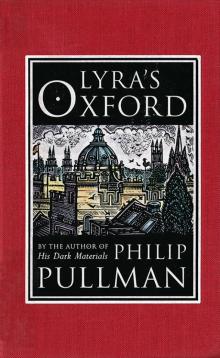 Lyra's Oxford
Lyra's Oxford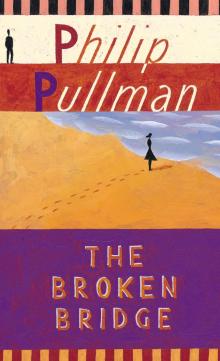 The Broken Bridge
The Broken Bridge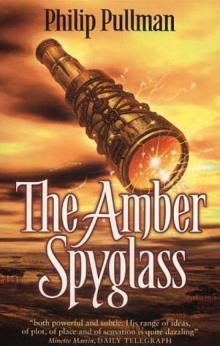 The Amber Spyglass
The Amber Spyglass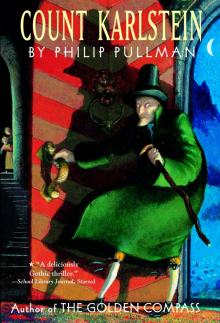 Count Karlstein
Count Karlstein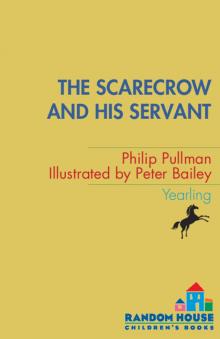 The Scarecrow and His Servant
The Scarecrow and His Servant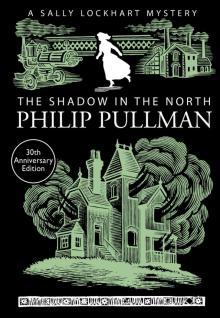 The Shadow in the North
The Shadow in the North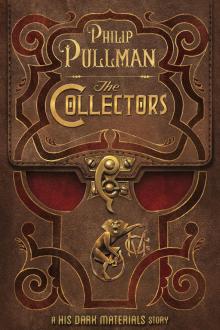 The Collectors
The Collectors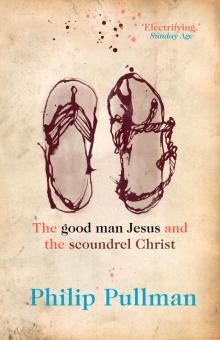 The Good Man Jesus and the Scoundrel Christ
The Good Man Jesus and the Scoundrel Christ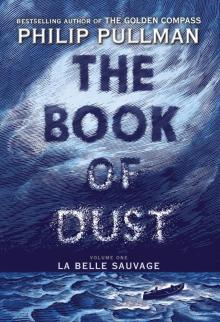 La Belle Sauvage
La Belle Sauvage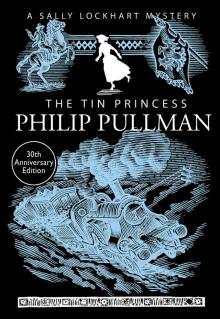 The Tin Princess
The Tin Princess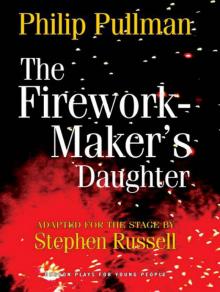 The Firework-Maker's Daughter
The Firework-Maker's Daughter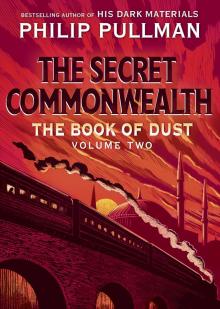 The Book of Dust: The Secret Commonwealth (Book of Dust, Volume 2)
The Book of Dust: The Secret Commonwealth (Book of Dust, Volume 2)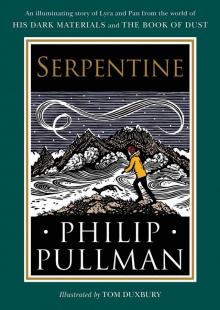 Serpentine
Serpentine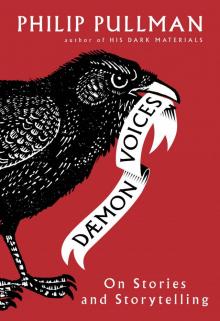 Daemon Voices
Daemon Voices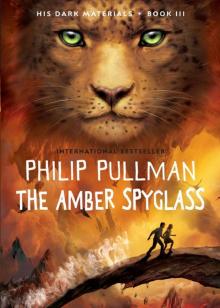 The Amber Spyglass: His Dark Materials
The Amber Spyglass: His Dark Materials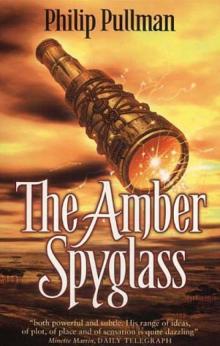 The Amber Spyglass hdm-3
The Amber Spyglass hdm-3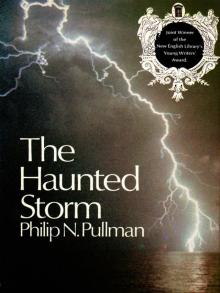 The Haunted Storm
The Haunted Storm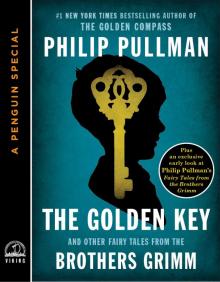 The Golden Key
The Golden Key His Dark Materials 01 - The Golden Compass
His Dark Materials 01 - The Golden Compass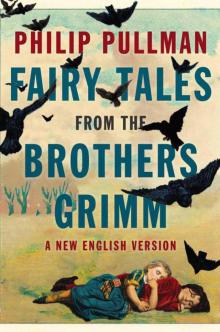 Fairy Tales from the Brothers Grimm: A New English Version
Fairy Tales from the Brothers Grimm: A New English Version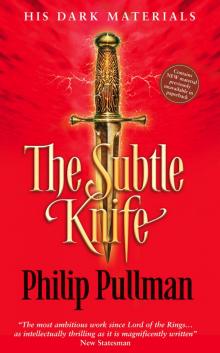 His Dark Materials 02 - The Subtle Knife
His Dark Materials 02 - The Subtle Knife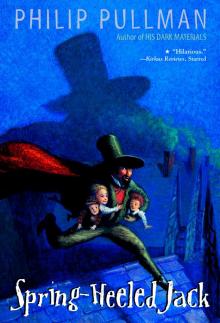 Spring-Heeled Jack
Spring-Heeled Jack The Golden Compass hdm-1
The Golden Compass hdm-1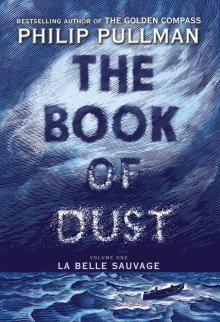 The Book of Dust, Volume 1
The Book of Dust, Volume 1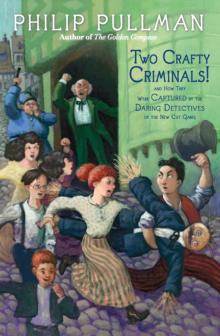 Two Crafty Criminals!
Two Crafty Criminals!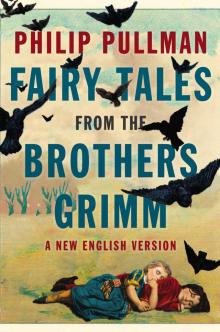 Fairy Tales from the Brothers Grimm
Fairy Tales from the Brothers Grimm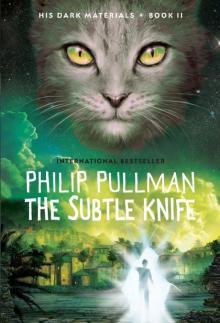 The Subtle Knife: His Dark Materials
The Subtle Knife: His Dark Materials His Dark Materials Omnibus
His Dark Materials Omnibus The Golden Compass: His Dark Materials
The Golden Compass: His Dark Materials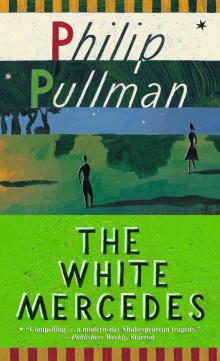 The White Mercedes
The White Mercedes